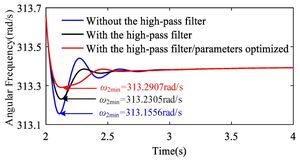Germany has recently increased the financial assistance available for care recipients through the Entlastungsbetrag, effective January 1, 2025. This monthly allowance, which has risen from 125 Euros to 131 Euros, brings the total annual support to 1,572 Euros. This change is expected to help many elderly and care-dependent individuals who rely predominantly on home care.
According to the Federal Statistical Office (Statistisches Bundesamt), the number of elderly and care-dependent individuals is on the rise, stressing the importance of home care solutions. By the end of 2023, approximately 5.69 million people received care benefits, with 86 percent being cared for at home. Despite the significant number of those eligible, many people are unaware of their rights to financial support.
The Entlastungsbetrag is aimed at relieving the financial burden on family caregivers and bolstering the independence of individuals requiring assistance. Despite this, reports indicate only 40 percent of eligible beneficiaries utilized the Entlastungsbetrag, as highlighted by studies from pflege.de.
The application process for the Entlastungsbetrag is straightforward. Individuals who possess any recognized level of care need (Pflegegrad 1-5) are eligible. These funds can be used for various approved services, such as household assistance, support for shopping, or even emergency short-term care. The financial relief provided by the Entlastungsbetrag is especially beneficial for individuals with lower care degrees, who often do not receive additional support through traditional care payments.
For care recipients wanting to access these funds, no specific application is needed beyond demonstrating recognized care needs. Recipients must handle service payments upfront and seek reimbursement afterward by submitting appropriate receipts to their care insurance providers. This reimbursement process tends to be complex, with many unaware of the mechanics behind it.
What many don’t realize is the importance of being proactive; those who fail to utilize their entitlement risk leaving significant funds unclaimed. Therefore, it is suggested to maintain thorough records of all payments and submitted invoices. Thankfully, unutilized monthly allowances can be rolled over to cover eligible expenses until June 30 of the following year, allowing for accumulated savings to be utilized effectively later on.
Services covered by the Entlastungsbetrag can significantly impact everyday life, providing recipients with necessary help to maintain their independence. Such services include daily activities assistance, emergency short-term care, and even support from recognized volunteer efforts. Families are encouraged to seek out approved service providers to clarify covered services and their associated costs to maximize benefits from these financial resources.
Despite the availability of the Entlastungsbetrag, many care recipients remain unaware of their entitlements. To combat this issue, outreach and educational campaigns should be implemented to raise awareness on how to access these benefits, ensuring they don’t go unclaimed. This could involve partnerships with local authorities and support organizations dedicated to helping elderly citizens.
With proper knowledge and application, the increase of the Entlastungsbetrag can provide significant financial relief, allowing family caregivers and home health aides to deliver services more effectively, fostering independence among care recipients. This necessary assistance not only supports the practical aspects of care but can also greatly improve the overall quality of life for millions of people.
By emphasizing awareness and accessibility, the revised Entlastungsbetrag structure takes meaningful steps to support Germany's aging population, enabling them to live more comfortably at home, surrounded by family and community.



